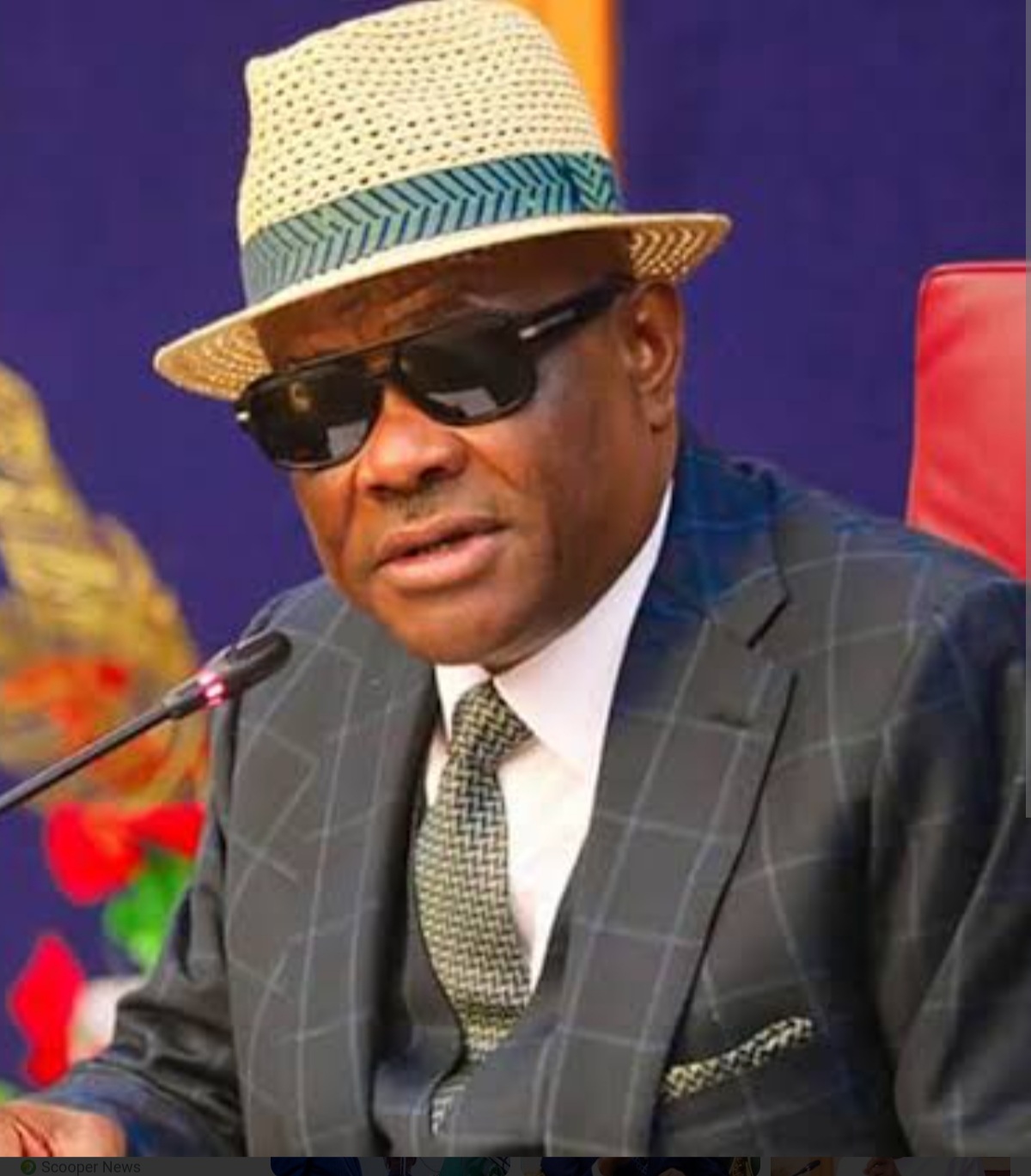By Perpetua Onuegbu
A coalition of civil society organisations has called for investigation of the Minister of Federal Capital Territory (FCT), Nyesom Wike, over illicit enrichment and possible breaches of Nigeria’s asset declaration laws.
In a joint statement on Wednesday, the coalition urged key anti-graft institutions—the Economic and Financial Crimes Commission (EFCC), the Independent Corrupt Practices and Other Related Offences Commission (ICPC).
The Code of Conduct Bureau (CCB), the National Judicial Council (NJC), and the Federali Inland Revenue Service (FIRS)—to launch coordinated investigations “without fear or favour.”
The groups stressed that no public official, regardless of rank or political influence, should be considered above the law.
“Selective enforcement corrodes public trust and undermines the legitimacy of Nigeria’s anti-corruption framework,” they said.
The coalition placed particular emphasis on the Code of Conduct Bureau’s responsibility to verify and monitor the asset declarations of politically exposed persons during their time in office, not just at the point of entry or exit.
Citing what they described as “credible reports,” the network alleged that Wike and his wife, Justice Eberechi Suzzette Nyesom-Wike of the Court of Appeal, are linked to several undeclared assets.
These according to the group includes three high-value lakeside properties in Winter Springs, Seminole County, Florida, acquired between 2021 and 2023 and allegedly transferred to their children.
The statement also mentioned concerns over the use of shell companies, luxury vehicles, and properties in Abuja allegedly allocated to members of the minister’s family.
The groups further drew attention to long-standing claims that $300 million meant for environmental remediation in Ogoniland was diverted into private ventures, including a retail business in Port Harcourt.
In addition, Senator Ireti Kingibe, representing the FCT, has accused the minister of unlawful land allocations, with some investigative reports alleging that premium plots in Abuja were handed to his relatives.
“These allegations, if substantiated, represent not only violations of Nigeria’s anti-corruption statutes but also a profound betrayal of public trust,” the coalition warned.
The civil society network outlined three immediate steps for authorities to take:
“A full audit of Mr Wike’s asset declarations as both governor and minister;
“A forensic probe into financial transactions linked to him and his immediate family;
“Transparent publication of investigative findings, followed by legal action where violations are confirmed.”
According to the groups, how anti-corruption institutions handle the matter will serve as a litmus test for their independence and credibility.
They called on the EFCC, ICPC, CCB, NJC, and FIRS to publish clear timelines for inquiries and communicate investigative procedures transparently to the public.
“Failure to act decisively will embolden corrupt practices, while a transparent investigation will restore legitimacy to Nigeria’s anti-corruption institutions,” the statement added.
The coalition also urged international watchdogs and development partners to closely monitor the process, noting that credible accountability in this case would strengthen Nigeria’s global reputation for integrity in governance.
Beyond the allegations, the groups warned that impunity among politically exposed persons erodes governance.
“When public officials perceive that accountability institutions are hesitant or selective in enforcement, corruption becomes a rational choice.
“Conversely, consistent and impartial enforcement deters misconduct,” the groups said.
The coalition further recommended convening a national dialogue involving civil society, political parties, the media, and international partners to address the broader issue of corruption among politically exposed persons.
They also called for nationwide public awareness campaigns to highlight the importance of truthful asset declarations and citizens’ rights to demand accountability.
“Anti-corruption must be seen as both a legal obligation and a behavioural signal,” the groups concluded. “Nigeria must prove that its laws apply equally to all, regardless of office or influence.”
The News Agency of Nigeria (NAN) reports that no fewer than 56 CSOs signed the statement and these include Civil Society Legislative Advocacy Centre (CISLAC).
Others are Conscience for Human Rights and Conflict Resolution (CHRCR) and Corporate Accountability and Public Participation Africa (CAPPA).
21st Century Community Empowerment for Youth Initiative Accountability Lab, Nigeria Abuja School of Social and Political Thought, Africa Network for Environment and Economic Justice (ANEEJ) among others. (NAN)
